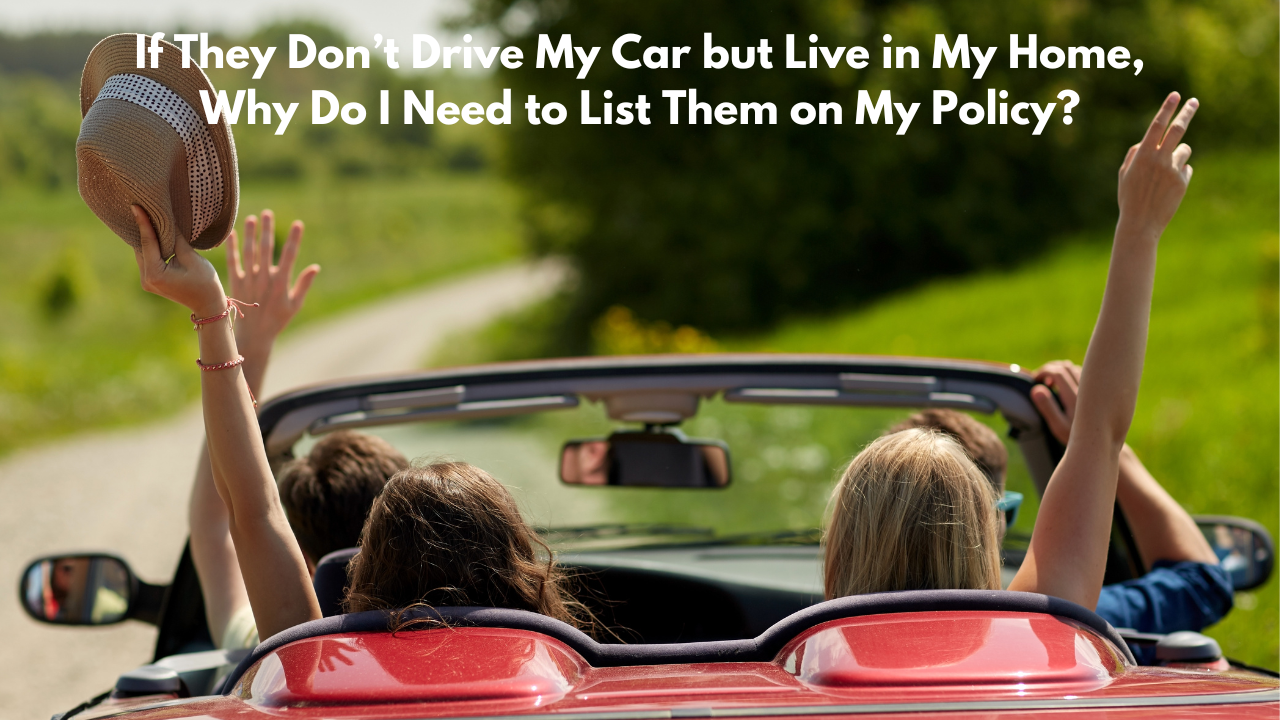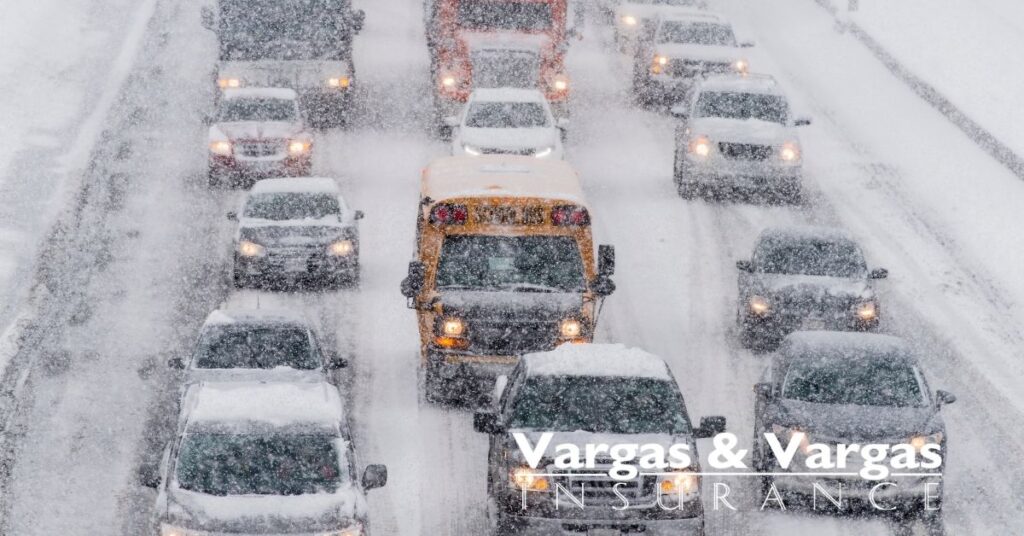If They Don’t Drive My Car but Live in My Home, Why Do I Need to List Them on My Policy?

Question 1: Why Does My Insurance Company Require Me to List Non-Drivers?
Have you ever been told by your auto insurance provider that you need to list every household member on your policy—even if they don’t drive your car? It might seem unnecessary, especially if those individuals have no intention of using your vehicle. So, why is this a common insurance requirement?
Question 2: What Are the Risks of Not Listing Household Members?
If they’re not driving, does it really matter? You might think skipping their names saves you money, but in reality, it could create unexpected financial risks and coverage issues. Many policyholders only realize the importance of this rule after a claim is denied or their policy is canceled.
Promise: Here’s What You’ll Learn
In this article, we’ll break down:
- Why insurers require all household members to be listed
- The potential consequences of leaving someone off
- How to handle non-drivers in your household without raising your premiums unnecessarily
Preview: Let’s Dive into the Details
By the end of this guide, you’ll understand why listing non-driving household members is a standard industry practice and how to navigate it without overpaying.
Why Do Insurance Companies Require Household Members to Be Listed?
Insurance companies assess risk based on who has access to your vehicle—not just who actively drives it. Even if a household member claims they won’t drive your car, insurers see them as a potential driver because they could use the vehicle in an emergency or at any given moment.
Key Reasons Insurers Require Listing Household Members:
✅ Access Equals Risk: If someone lives in your home, they can easily take your car, whether it’s for a quick trip to the store or an emergency situation. Insurance companies assume this possibility when assessing risk.
✅ Avoiding Undisclosed Drivers: If an unlisted household member gets into an accident while driving your car—even without permission—your insurance provider may refuse to cover the claim.
✅ Household Rating Factors: Insurance rates are based on all potential drivers under one roof. Even if someone doesn’t drive your car today, their presence could impact risk assessments in the future.
✅ Fraud Prevention: Some people intentionally leave higher-risk drivers (such as teenagers or individuals with bad driving records) off their policies to lower premiums. Insurance companies require full disclosure to prevent this type of misrepresentation.
What Happens If You Don’t List a Household Member?
Failing to list all household members—even if they don’t regularly drive—can have serious consequences.
Potential Risks of Omitting a Household Member:
🚨 Claim Denial: If an unlisted resident gets into an accident with your car, your insurance company may refuse to cover the damages.
🚨 Policy Cancellation or Non-Renewal: If your insurer discovers that a household member should have been listed but wasn’t, they could cancel or refuse to renew your policy.
🚨 Higher Premiums Later: If an insurance company finds out you omitted someone, they may reassess your risk profile and charge higher rates in the future.
🚨 Legal or Financial Liability: If an unlisted driver causes a serious accident, you could be personally responsible for damages, medical costs, or lawsuits.
What If a Household Member Truly Never Drives?
Not every household member needs to be a rated driver on your policy. If someone truly never drives and has their own insurance or no license, you may be able to exclude them to avoid unnecessary rate increases.
Options for Non-Driving Household Members:
✔️ Named Driver Exclusion: Some insurance companies allow you to exclude a household member from coverage. This means they won’t be insured under your policy—but if they ever drive your car, you’ll have no coverage if they crash.
✔️ Proof of Other Insurance: If the household member has their own auto insurance, you may be able to provide proof and exclude them from your policy.
✔️ Signed Non-Driver Statement: Some insurers accept a legally binding affidavit stating that a household member does not drive and will not use your vehicle.
💡 Pro Tip: If a non-driving household member gets a driver’s license later, notify your insurance company immediately to avoid complications.
How to Keep Your Premiums Low While Complying with Insurance Rules
If you’re worried that listing all household members will increase your premiums, here are some strategies to reduce your insurance costs while staying compliant:
💰 Shop Around for Competitive Rates – Not all insurance companies have the same rules about listing household members. Compare providers to find one that offers better options.
💰 Ask About Usage-Based Insurance – If most drivers in your household rarely use your car, consider telematics programs that adjust your rate based on actual driving behavior.
💰 Bundle Policies for Discounts – If multiple household members need coverage, bundling auto and home insurance can often lead to significant savings.
💰 Increase Your Deductible – A higher deductible can lower your monthly premium, making it more affordable even if you must list additional household members.
Final Thoughts: Be Transparent to Protect Yourself
While it might feel unnecessary to list non-drivers on your auto insurance policy, doing so protects you from denied claims, coverage gaps, and potential policy cancellations.
✔️ Always disclose household members, even if they don’t drive regularly.
✔️ Work with your insurer to exclude true non-drivers legally if needed.
✔️ Compare policies to find the best coverage at the most affordable rate.
Next Steps: Talk to Your Insurance Provider
If you’re unsure whether a specific household member needs to be listed on your policy, speak with your insurance provider for guidance. Transparency now can save you from costly issues later.
Want a professional review of your current policy? Contact Vargas & Vargas Insurance today at 617-298-0655 for expert advice and a personalized assessment!

























